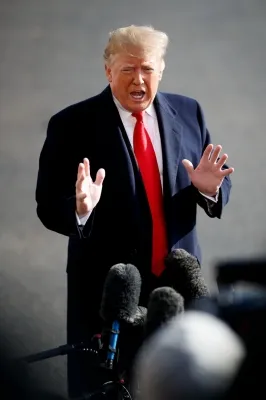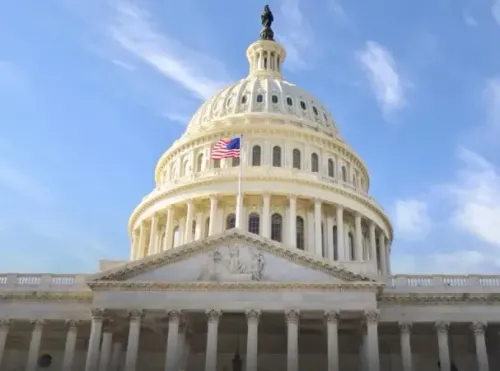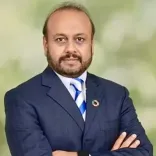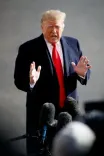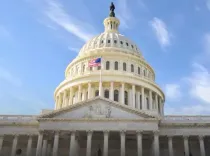UN Secretary-General Guterres Urges Consensus for Security Council Reforms
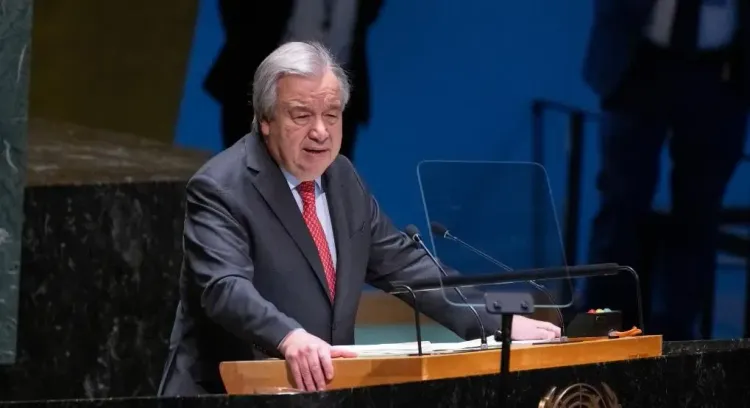
Synopsis
Key Takeaways
- Guterres urges a consensus for Security Council reforms.
- The Council must represent current geopolitical realities.
- The reform process has stalled for 16 years due to specific countries' opposition.
- African nations seek recognition in permanent membership.
- Russia advocates for broader representation in the Council.
United Nations, Feb 19 (NationPress) Secretary-General Antonio Guterres has emphasized that now is the moment to cultivate a stronger consensus regarding the reform of the Security Council, aiming to enhance trust in the United Nations and this Council.
“This Council needs to be expanded and should better represent today’s geopolitical landscape,” he remarked on Tuesday during a session focused on multilateralism and the reform of global governance.
He highlighted the call for reform established in the Pact for the Future, which was unanimously adopted at last year’s summit of world leaders, outlining their vision for the UN as it approaches its 80th anniversary.
“Now is the time to leverage the momentum from the Pact for the Future and strive for a stronger consensus among regional groups and Member States—including the Council's permanent members—to advance intergovernmental negotiations,” he stated.
“The Pact also acknowledges that the Security Council must mirror the world of today, not that of 80 years ago, and outlines critical principles to guide this long-awaited reform,” he added.
The reform initiative, known as the Inter-governmental Negotiations (IGN), has been stagnant for 16 years due to a coalition of countries referred to as Uniting for Consensus (UfC), which has hindered the adoption of any foundational texts for negotiations.
This coalition, led by Italy and including Pakistan, is primarily motivated to prevent a specific country from acquiring a permanent seat.
Using a metaphor from the digital realm, Guterres articulated, “We have the hardware for international cooperation, but the software requires an update.”
The update should “reflect the realities of today” and assist “developing nations in addressing historical injustices.”
This Council meeting was a hallmark event of China’s presidency this month, presided over by Foreign Minister Wang Yi.
Wang expressed broad support for reforming the Council, emphasizing Africa as a special case—a strategy employed by Beijing and other nations to separate African demands from those of other countries and pursue limited reform.
This approach is in response to significant pressure from the 55-member African Union to rectify the historical injustice of being denied any permanent seats when much of the continent was under colonial rule, as those opposing reforms do not want to appear anti-Africa.
China is against expanding the Council's permanent membership to include India and Japan.
Sierra Leone’s Deputy Foreign Minister Francess Piagie Alghalie asserted that Africa’s exclusion from decision-making bodies like the Council must be acknowledged as a legacy of colonialism and political marginalization that has inflicted deep wounds on the continent.
As the foundation of international peace and security, the Council must undergo reform to accurately reflect current geopolitical realities and ensure equitable representation, she insisted.
Russia’s Permanent Representative Vassily Nebenzia declared that the reform of the UN and the Council should be prioritized.
“We advocate for increased representation in the Security Council for African, Asian, and Latin American states,” he stated.
The Council is predominantly influenced by Western powers, which he referred to as “successors of colonial powers—a remnant of the past.”
Britain’s Permanent Representative Barbara Woodward affirmed her country’s support for reforming the Council, but insisted that the existing tools should be utilized “to fulfill its peace and security mandate.”
Pakistan’s Deputy Prime Minister Ishaq Dar expressed opposition to increasing the Council's permanent membership.
“Introducing new permanent members would contravene the principle of sovereign equality, render the Council even less representative, and heighten the chances of paralysis within the Security Council,” he stated.



